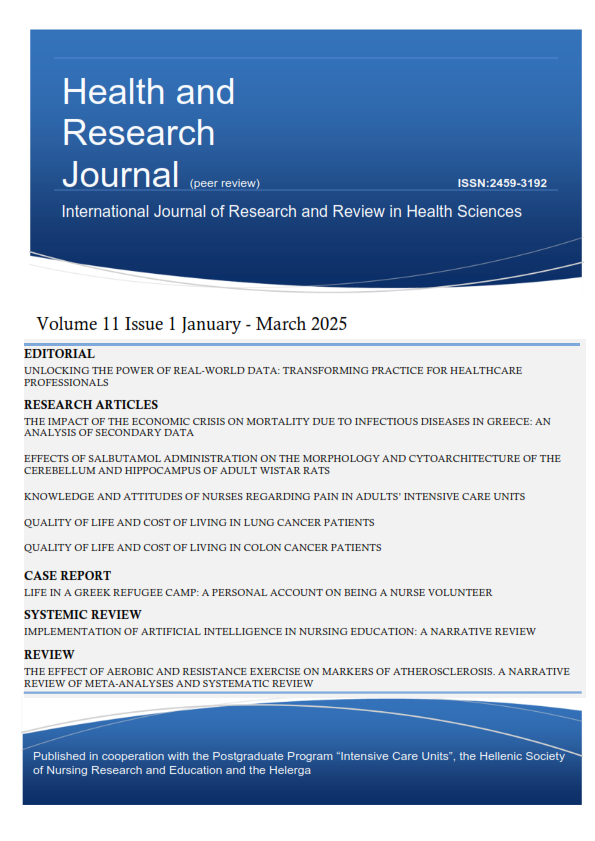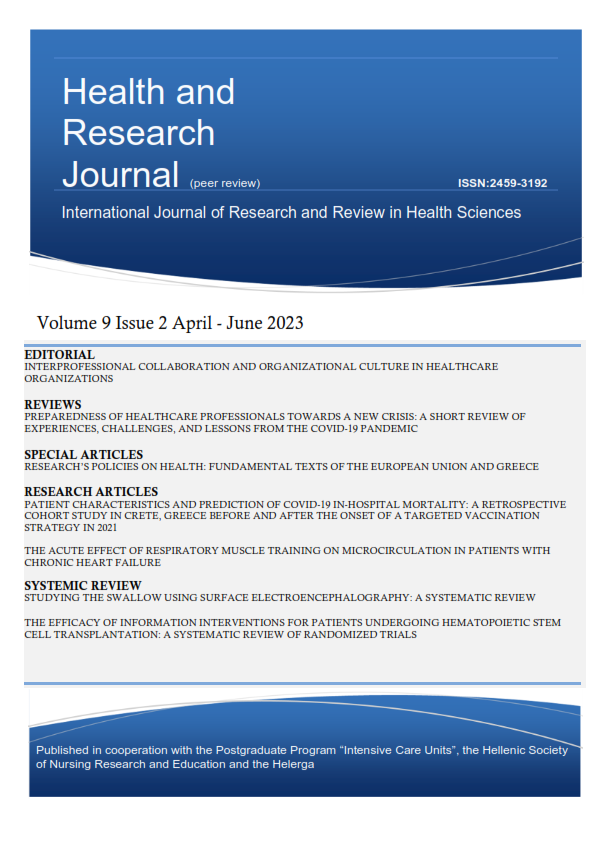Implementation of Artificial Intelligence in nursing education: Α Νarrative Review

Abstract
Background: As technological advancements continue to reshape various industries, the integration of AI in healthcare education emerges as a crucial facet in preparing future nursing professionals. This narrative review aims to elucidate the numerous ways AI technologies are being utilized in nursing education.
Methodology: A search in two internet databases was conducted for relevant studies, using keywords. The inclusion criteria encompassed studies published within the last 5 years, written in English, and focused on the integration of AI technologies in nursing education settings. The selected articles underwent a systematic screening process.
Results: Of the 523 papers retrieved, 7 were included in the final synthesis. These studies evaluate the implementation of AI methods in undergraduate nursing students. The AI method usually used was a Chatbot. In 4 studies, a 3D avatar was incorporated into the AI tool to serve as a Virtual Patient. The studies focused on various learning objectives, with 4 studies emphasizing communication skills enhancement. The remaining 3 studies used the AI tool to assess students' knowledge and clinical skills. Clinical scenarios were predominantly used, and in studies with a 3D avatar, scenarios addressed theoretical knowledge, critical thinking, and decision-making in escalating clinical conditions. Endpoints of AI implementation were assessed using self-reported questionnaires, interview and direct feedback from the Chatbot. Consistent endpoints included students' self-efficacy, knowledge of the learning objective, students' satisfaction and attitudes toward the learning style.
Conclusions: As technology continues to advance, the potential for AI in nursing education is becoming increasingly evident. Given that nursing is an interactive science, it seems that AI Chatbots are more useful in nursing education. Further AI implementation will enrich our understanding of how its integration will serve nursing education.
Article Details
- How to Cite
-
Kouka, A., Giannelou, E., Konstantinidis, K., & Apostolakis, I. (2025). Implementation of Artificial Intelligence in nursing education: Α Νarrative Review. Health & Research Journal, 11(1), 74–82. https://doi.org/10.12681/healthresj.36795
- Section
- Systematic Reviews
Copyright notice:
Authors retain copyright of their work and grant the Health and Research Journal the right of first publication.
License:
Articles are published under the Creative Commons Attribution 4.0 International License (CC BY 4.0). This license permits use, sharing, adaptation, distribution, and reproduction in any medium or format, including for commercial purposes, provided that appropriate credit is given to the author(s) and the original publication in this journal, a link to the license is provided, and any changes are indicated.
Attribution requirement:
Any reuse must include the article citation and DOI (where available), and indicate if changes were made.



